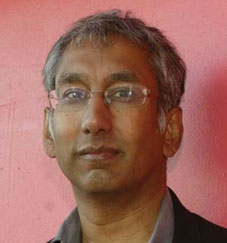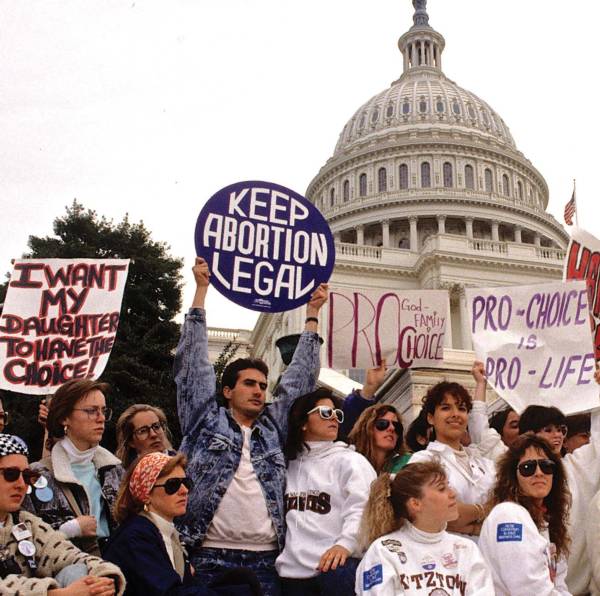
YES - Get rid of this oppressive symbol
Yasmin Alibhai-Brown
Burqa bans are coming in a number of EU countries. A Pew Global Attitudes survey found that 62 per cent of Britons want the same ban imposed here. An unlikely alliance of resistors has assembled to prevent any such move – Muslim Wahabis, right-wing libertarians, left-wing anti-racists. And, of course, fervent torch bearers of the Enlightenment, whose central argument is freedom – the core value of liberalism. That one principle overrides other serious considerations and reveals the inadequacies of textbook British liberalism – idle, unaware of plates shifting enigmatically in the 21st century. Avowed liberals are only able to see conflicts in binary terms – left/right, faith/atheism, freedom of expression/censorship, west/rest, Islam/enlightenment and so on. They are as committed to literalism as are literalist religious believers – in all situations they revert to the rule book, quote Voltaire, Mill and Locke, their prophets. Real liberalism means accepting illiberal choices they say, somewhat self-righteously. The burqa does not affect their own lives or test their powers of endurance. I tried to wear the full veil for a day, but threw it off in a couple of hours. I felt wiped out, lifeless and voiceless.
When all complex dilemmas are reduced to choice, liberty itself becomes limp and eventually irrelevant. A daughter of, say, Christian Scientists will refuse medical treatment for a life-threatening condition. We all know that response was steadily injected into her – it is a choice she cannot not make. And yet if a group of girls were ready to hurl themselves off a cliff, proclaiming their right to do so, the most libertarian of warriors would surely try to stop them.
Furthermore, the British power elite casts itself – unconsciously perhaps – as more free-thinking than its European counterparts. Voltaire said we were, after his period of exile on these isles. What better reference do we need? In this unending intra-continental culture war, Britons feel superior to more bigoted neighbours, where anti-Muslim attitudes are indeed uglier and untamed. To be a Muslim in the rest of Europe is more demanding than in this country.
When French schools banned the headscarf, North African citizens were obliged to examine their own identities seriously and make difficult, decisive choices. (Incidentally, most French Muslim schoolgirls follow the rule and there has been little sign of discontent.) Such tough secular tests are not set in the UK. When Jack Straw asked a constituent to take her face covering off during a meeting, it was seen as a little local difficulty rather than a critical challenge to cultural laissez faire. Or you get, as now, right-wing politicians using the veil for populist purposes.
The burqa is not a battle between anti-racists and racists, or liberty and oppression. It is between open and egalitarian Islam and obscurantism; human rights values and inhumane exceptionalism; integration and apartheid. Wahabis are spreading a singular, joyless version of Islam, wiping out diversity and our various histories. They use choice and freedom as weapons to destroy both. Muslim defenders of the burqa never support a woman’s right not to cover up. Instead women like me are branded “Western whores” who will burn in hell. Is the veil a declaration of girl power? No. Ardent veilers are proxy Taliban agents and have no conscience about their sisters in Afghanistan, Iran and elsewhere – women who long to show their faces and wear whatever they want. We have them here too, those forcibly shrouded females, negated further in the narrative of choice. Some – victims of domestic violence whose scars can never be seen – turn up at my door. Even children too are cast as sexual temptresses, dressed in headscarves and long gowns, unable to play. What appalling freedom is this?
Modernist Muslims watch helplessly as organised brainwashers, aided and abetted by liberals, bury Muslim females in living graves because femininity is treacherous – an evil slur. Muslim men too are demonised as sexual beasts lacking self-control. Most Muslims may have come to Europe for economic reasons, but many also migrated to escape women-hating Ayatollahs and Mullahs and regimes, to live in democracies that uphold civil and gender rights. Those oppressive ideologies have migrated too. There seems no escape.
Bans may be hard weapons. But sometimes they are necessary. It is perfectly legitimate to require that faces must be visible in public institutions. And surely it’s a defence of human rights to insist that pre-pubescent schoolgirls are protected from restrictive and inhibiting coverings. Progressives should stand for non-racist, universal human development. The burqa brigade blackmail our nervous nation to stop them if it dares. Does it?
Yasmin Alibhai-Brown is a columnist for The Independent and The Evening Standard, and author of The Settler's Cookbook. Visit her website.
***************************************************************************
 NO
NO
Kenan Malik
The burqa should have no place in a 21st-century society, either as a piece of clothing or as a symbol of the status of women. But is the medievalism of the burqa best confronted through the illiberalism of a state ban? I think not.
There are three main kinds of arguments in favour of a ban: practical, political and existential. Practical concerns centre around worries that the burqa might make it easier for terrorists to evade security checks, and harder for people to perform certain jobs, especially those requiring face-to-face contact with the public. Politically, the burqa does little for gender equality or social integration. And for some, it poses a mortal challenge to Western values.
A burqa unquestionably creates a myriad of practical problems. It is, after all, a piece of clothing designed for feudal life, not the modern world. Practical problems can usually be solved, however, on a case-by-case basis. Airports already require veiled women to reveal their features when passing through security. If burqas are incompatible with the needs of particular jobs, then employers can legitimately bar them. It’s one thing, however, to accept the need for specific security measures or dress codes, quite another to insist on a state ban.
The burqa is undoubtedly demeaning to women. Many other practices and rituals that Western societies tolerate are, however, also degrading. The Catholic Church forbids women priests. Many Protestant evangelical churches insist that the role of women is simply to breed new evangelicals. Nobody seriously suggests that the Catholic Church should be forced to accept gender equality or that the state should save evangelical wives from being baby factories. A liberal society accepts that individuals should be free to make choices that may not be in their interests, or even degrade them.
But is a ban not necessary to protect women from being forced to wear the burqa? In countries such as Saudi Arabia or Yemen women have little choice but to cover up their face. That in itself is a good reason for liberal societies not to impose coercive dress codes. In democratic countries, the law already protects citizens from being harmed or coerced by others. It should go no further, especially as evidence suggests that in Europe most women wear the burqa of their own volition. As a recent French government report observed, the majority of women who veil themselves in France do so largely as an “expression of identity”, a “badge of militancy” or to “provoke society”.
The burqa is a symbol of the oppression of women, not its cause. If legislators truly want to help Muslim women, they could begin, not by banning the burqa, but by challenging the policies and processes that marginalise minority communities: on the one hand, the racism that all too often disfigures migrant lives, and, on the other, the multicultural policies that bolster conservative “community leaders” hostile to women’s rights.
What of the impact of the burqa on social integration? Clearly, the very purpose of the burqa is to inhibit normal social interaction. Out of a Muslim population of 5 million in France, however, fewer than 2,000 women wear one. Just 500 do so in Holland. Given that a burqa is almost as rare in Paris or Amsterdam as a bikini in Riyadh or Karachi, it can hardly be held responsible for problems of integration.
Faced with such criticisms, the French philosopher Bernard-Henri Lévy has suggested that in reality a burqa ban is “not about the burqa” but “about Voltaire. What is at stake is the Enlightenment of yesterday and today, and the heritage of both.”
The idea that the entire weight of the Enlightenment tradition should rest on banning a piece of cloth worn by a few hundred women shows how absurd has become the debate about the burqa. It has become a symbol of the crisis of identity that besets many Western nations. Unable to define clearly what it means to be British or French, politicians have often taken the easy step of railing against symbols of “alienness”. The burqa bans are an attempt to define “Western values” by showing what such values or traditions are not, at a time when politicians find it difficult to express what they are.
It is important to defend social equality, the secular society and the heritage of the Enlightenment. But we cannot do so by promoting illiberal policies, stigmatising immigrants or banning symbols of “otherness”. The very values that Lévy believes are undermined by the burqa demand that we oppose any attempt by the state to ban it.
Kenan Malik is a journalist, broadcaster and author. His latest book is From Fatwa to Jihad. Visit his website

